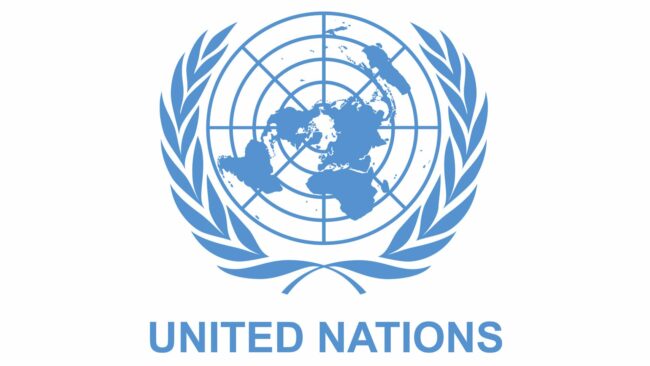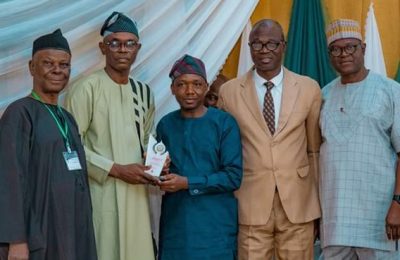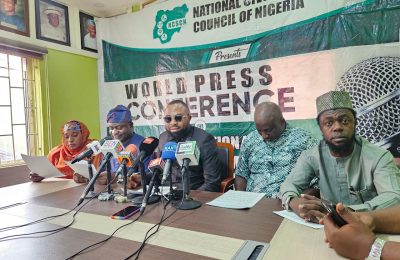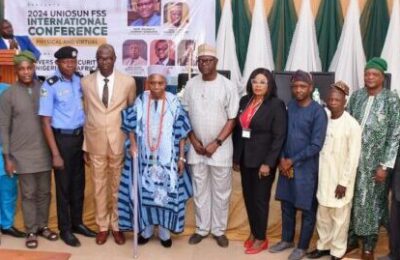The panel’s report – “Resourcing the energy transition: principles to guide critical energy transition minerals towards equity and justice” – identifies ways to ground the renewables revolution in justice and equity, so that it spurs sustainable development, respects people, protects the environment, and powers prosperity in resource-rich developing countries.
The report puts forward recommendations for fairness, transparency, investment, sustainability and human rights, not just where minerals are mined, but along the entire minerals value chain, from refining and manufacturing, to transport and end-of-use recycling.
“This is a time when cooperation is paramount for nations to effectively address multiple crises,” said Ambassador Mxakato-Diseko, Co-Chair of the Panel on Critical Energy Transition Minerals.

“With climate change at the center of these crises, there is urgency to work together with a clear understanding that we either sink together or rise together, on the basis of the common values that have bound nations together thus far, with human rights, justice, equity and benefit sharing guiding us towards shared global prosperity.
Development is an imperative for global economic growth. Central to the proposed seven guiding principles for critical energy transition minerals is the need for such cooperation, justice and equity and above all development with respect for human rights at the core.”
“I would like to commend the UN Secretary-General’s leadership in tackling such a transformational issue,” said Director-General Ditte Juul Jørgensen, Co-Chair of the Panel on Critical Energy Transition Minerals.
“This is what multilateralism is all about. Last year at COP28, all countries agreed to triple the global renewables capacity and double energy efficiency.

“Demand for critical minerals will skyrocket. We must now seize the opportunity to grow our economies, protect our societies, preserve our environment, and share benefits more justly while we tackle the climate crisis.
“We cannot afford to repeat the mistakes of the past. I hope we can now turn these principles and recommendations into reality on the ground.
“Only in this way, we will tap the potential of the energy transition and create new and shared benefits for all.”
The guiding principles build on existing international norms and legal obligations to which governments have already committed, and are accompanied by a set of specific, actionable recommendations for everyone to benefit from the opportunities inherent in a transition to renewable energy.
Some of the panel’s recommendations include establishing a high-level expert advisory group housed within the United Nations to facilitate multi-stakeholder policy dialogue and coordination on economic issues in mineral value chains, creating a global traceability, transparency and accountability framework, establishing a fund to address legacy issues as a result of derelict, ownerless or abandoned mines, and empowering artisanal and small-scale miners to become agents of transformation to foster development, environmental stewardship and human rights, to strengthening material efficiency and circularity.
Limiting global warming to 1.5 degrees Celsius, to avert the worst impacts of climate change, will depend on the sufficient, reliable and affordable supply of critical energy transition minerals such as copper, lithium, nickel, cobalt and rare earth elements, which are essential components of clean energy technologies – from wind turbines and solar panels to electric vehicles and battery storage.
At COP28, governments agreed to triple renewable energy capacity and double energy efficiency by 2030.
There is no pathway to achieving this goal without a significant increase of supply of critical energy transition minerals.
According to the International Energy Agency, mineral demand for clean energy applications is set to almost triple by 2030 on the pathway to reaching global net zero carbon dioxide emissions by 2050.
Developing countries with large reserves of critical energy transition minerals have an opportunity to transform and diversify their economies, create green jobs, and foster sustainable local development.
However, mineral resource development has not always met this promise.
Without proper management, increased demand for these minerals risks perpetuating commodity dependence, exacerbating geopolitical tensions, and poses environmental and social challenges with adverse impacts on sustainable development including on livelihoods, the environment, health, human security and human rights.
Responding to calls from developing countries for globally agreed guidance to ensure responsible, fair and just value chains, the panel, established by the UN Secretary-General on April 26, 2024, brought together governments, intergovernmental and international organizations, industry, and civil society to build trust, guide the just transition and accelerate the race to renewables.
Panel meetings were supplemented by a programme of consultations and dialogues with a broad range of stakeholders, including with industry and civil society.
The recommendations recognise the central role of the Secretary-General and the UN as an honest broker and convener of diverse interests on a complex and challenging set of issues critical to the energy transition and achieving the goals of the Paris Agreement.







